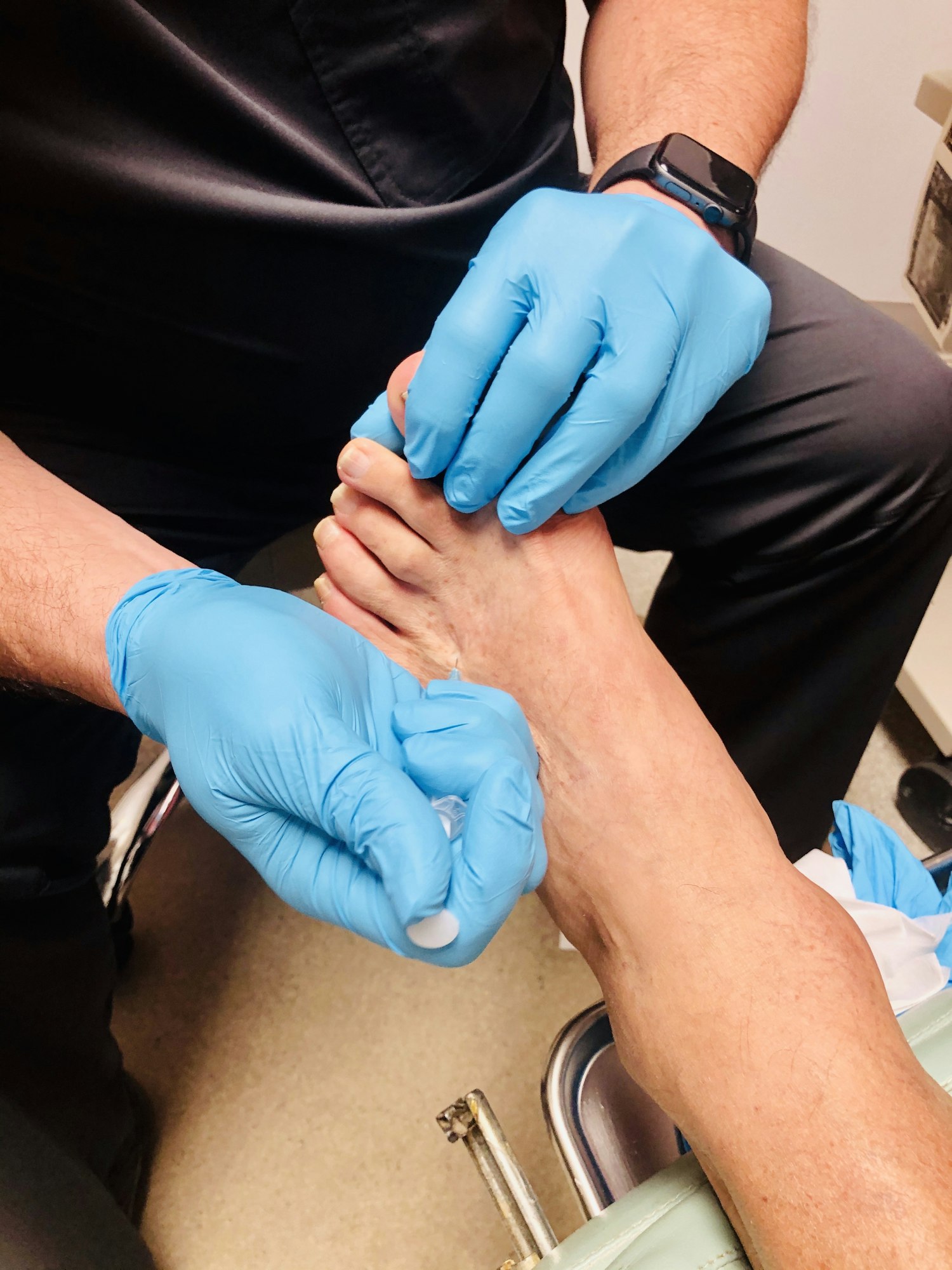Table of Contents
Introduction
Pain of any sort is less-than-ideal, but it is actually quite useful. After all, this indicates something is wrong with your body.
If you don’t experience pain, then you don’t do anything—whether autonomically or consciously—to resolve the problem.
Whereas all pain is useful for signaling an existing problem, not all pain is the same. One way you can think about differentiations in pain is the distinction between orthopedic versus neuropathic.
Orthopedic pain is the result of an issue within your body’s musculoskeletal system. This is caused by injuries like bone fractures, muscle sprains, and connective tissue strains.
Neuropathic pain, on the other hand, is the result of an issue within your body’s nervous system.
The Nervous System
Whereas it is often referred to as a single system, the nervous system is actually comprised of two, equally-important parts: the central nervous and peripheral nervous systems. When we consider nerve pain in the foot and ankle, we are often looking at issues in the peripheral nervous system.
The central nervous system—formed by the brain and spinal column—is responsible for receiving and processing information, which enables us to experience sensations. The information the brain processes is collected and transmitted to the spinal column via peripheral nerves.
When the peripheral nerves are healthy, there is usually no issue. Problems begin, though, when they become damaged or receive abnormal pressure from an external source (like a tumor, for example). At this time, the usually-helpful nerves can become a source of pain or phantom symptoms like tingling or burning sensations.
There are several conditions which can cause nerve pain and other symptoms. Neuropathy (nerve damage), neuromas (enlarged, thickened nerve tissues), and tarsal tunnel syndrome are some examples of conditions we sometimes need to treat for our patients.
Peripheral Neuropathy Explained
Peripheral neuropathy is a condition wherein nerve damage has been sustained and nerve fibers are unable to accurately convey messages back to your central nervous system. This can happen for an assortment of reasons, with diabetes being a particularly common one.
Other potential causes of nerve damage include exposure to toxins, certain medications, inherited disorders, autoimmune diseases, tumors (both cancerous and benign), and vitamin deficiencies. Individuals who struggle with alcoholism often tend to make poor dietary choices, which can lead to vitamin deficiency that triggers a neuropathic condition.
Manifestations of Nerve Pain
Nerve problems manifest in various ways, including pain that can be quite debilitating (in severe cases).
The actual nature of the neuropathic pain will differ from patient to patient, but can be described as any of the following: sharp, burning, tingling, “pins and needles,” and other abnormal sensations.
In addition, a nerve condition can cause hypersensitivity. This is a situation wherein things you would only barely notice or not consider to be painful cause excruciating pain. Examples of this include a light bedsheet touching your skin, wearing clothing that would otherwise feel comfortable, and even the water coming down in the shower.
In some cases, patients report feeling as though they have a pebble in a sock or shoe, when none is actually present.
Nerve Pain Treatment Options
Treatment will depend, naturally, on the condition responsible for the problem. With that said, some of the more common treatment options include:
- This approach is mainly used to treat existing pain. Pain relievers, topical treatments, anti-seizure medications, and even antidepressants can all be beneficial in certain cases.
- Orthotic devices. In some cases, keeping pressure off an affected nerve is quite helpful.
- Rest and massage. When the source of pain is a neuroma, rest and a foot massage can provide relief.
- Shoe modifications. Switching footwear choices from pointy-toed high heels to models featuring low heels and plenty of room for toes to move can make a big difference.
- Surgery. Our goal is to use conservative care as often as possible, but sometimes nerve issues need to be addressed with surgical procedures.
Tips for Optimal Nerve Health
The best way to prevent issues from developing is to have healthy, strong nerves. There are several ways to do this, including:
- Exercise regularly. As always, make sure to check with us and your primary physician to assess your fitness levels and help you create a safe, effective workout program.
- Quit all tobacco usage. Smoking and other forms of tobacco use restrict blood vessels and can deprive your nervous system of essential nutrients.
- Manage diabetes, high blood pressure, and other medical conditions. Diabetes and neuropathy are closely linked, but keeping on top of the disease can lower the risk.
- Drink lots of water. Staying hydrated is essential for several reasons, but you can add “nerve health” to that list.
- Eat a balanced diet. You can help your nervous system by eating a diet based on fresh veggies, fruits, and whole grains. The nutrients in these foods will protect the nervous system and enable it to function at full capacity.
- Supplement your diet. If you do not consume enough fatty acids, B-complex vitamins, vitamins C and E, and magnesium, use supplements to increase their levels in your body and keep your nerves functioning correctly.
- Get plenty of sleep and rest. Your body uses downtime to repair and replenish damaged or overworked tissues, including those in your nervous system. Be sure to always sleep between 7-8 hours (at least) every night.
Professional Care for Nerve Pain in Feet & Ankles
For additional information on nerve pain treatment—or any of the many foot and ankle conditions we treat—call or contact us online right now.
Looking to schedule an appointment with a physician?
or by clicking the Schedule Online button!



